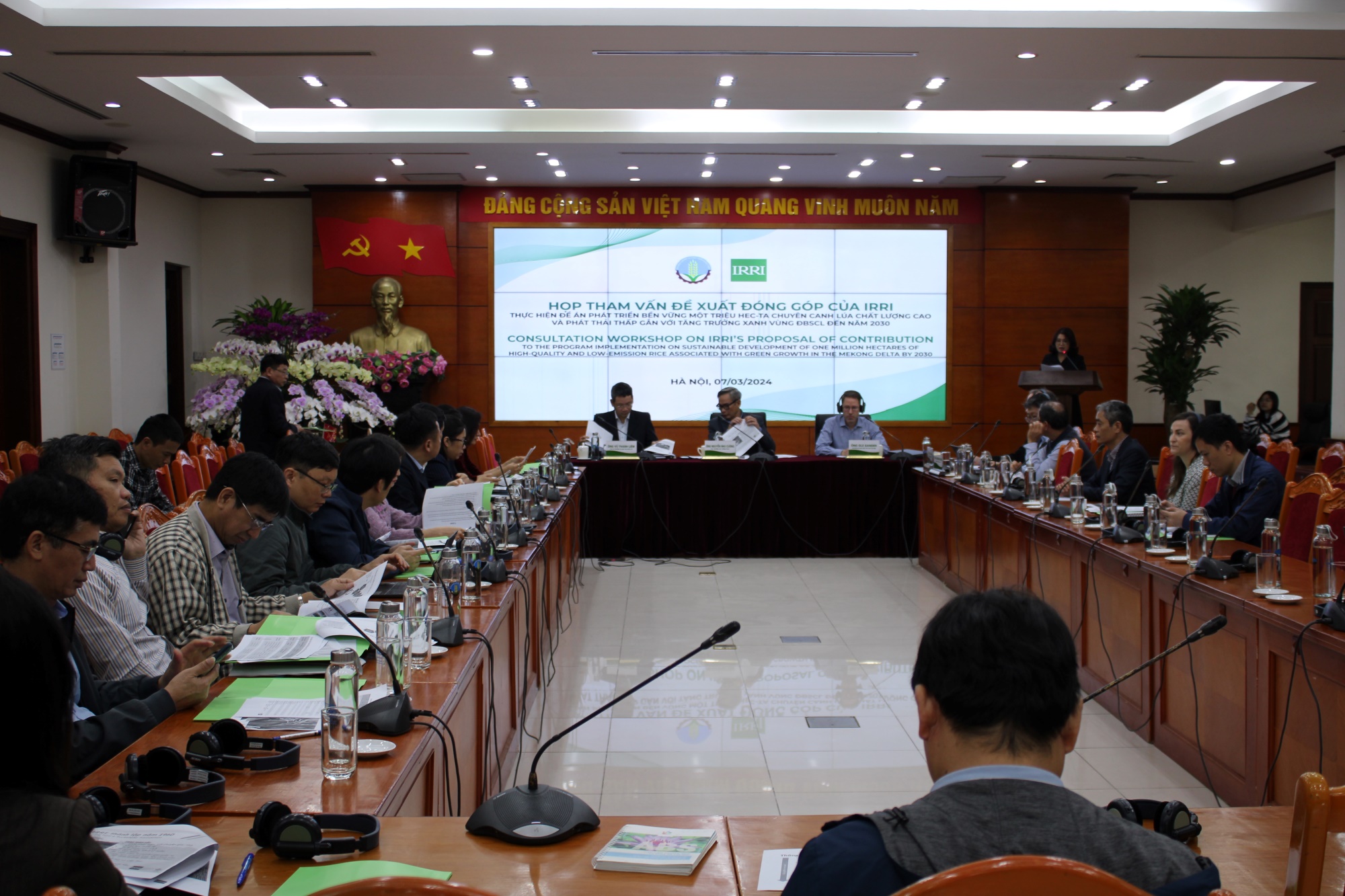IRRI proposes technical solutions to Vietnam to effectively establish and implement MRV for the One Million Hectares Program

The Ministry of Agriculture and Rural Development (MARD) of Vietnam continued its consultations with the International Rice Research Institute to pursue the next steps of implementing the Sustainable development of one million hectares of high-quality and low-emission rice associated with green growth in the Mekong River Delta to 2030 (One Million Hectares) Program.
The program aims to enhance the production and economic efficiency of the rice sector, help it adapt to climate change, reduce greenhouse gas (GHG) emissions, and contribute to Vietnam’s international mitigation commitments, including achieving net-zero emissions by 2050.
The MARD Minister, Dr. Le Minh Hoan, assigned the Department of Crop Production (DCP) to develop the program implementation plan including the Measurement, Reporting, and Verification (MRV) with contributions from internal and external resources, according to DCP Director Nguyen Nhu Cuong.
With its expertise and experience in GHG mitigation and carbon markets, IRRI is working with the MARD’s agencies, including the Department of Crop Production, the Institute of Agriculture Environment, and the Institute of Policy and Strategy for Agriculture and Rural Development to coordinate the support of various experts in developing and operating MRV in the rice production areas. IRRI presented its technical solutions to MARD’s leaders through a series of consultation meetings organized by MARD on March 7, 13, and 20.
IRRI’s proposal of digital tools for an MRV framework for rice production in Vietnam includes GHG computation engine (RiceGEM), rice activity data monitoring and reporting platforms at commune scale (RiceMoRe) and field scale (FarMoRe), rice growth and GHG simulation model (Oryza), which could potentially be integrated into an MRV ecosystem to support the implementation of 1M ha program and facilitate approaching voluntary carbon markets. IRRI is also working on other MRV-supportive technologies such as remote sensing, IoT, machine learning, and AI, that may be useful for the next phase of the 1M ha program.
These consultation meetings also discussed other aspects related to the 1M ha program, including the establishment of a soil database, standard low-emission practices, benefit-sharing mechanisms, capacity-building needs, contribution to sectoral GHG inventory, and national NDC targets.
These events highlighted potential cooperation between MARD and IRRI for success in rice production, climate change adaptation, and mitigation as part of Vietnam’s sustainable development and GHG emission reduction goals.


